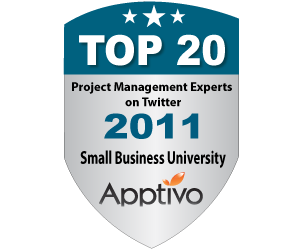We are just a few weeks away from PW&WCBA 2013! In our Speaker Spotlight
series, Amit Mitra, Senior Manager at TCS America sat down with us to
discuss what it takes to be a great project manager and business analyst in an
environment that is becoming more competitive every day. Here is what Mitra had
to say:
IIR: How do you,
as a project manager of business analyst,
stand out in a crowd in this competitive business world?
Mitra: Consider
the architecture of change. Technology and process challenges might be complex,
but the biggest risk to an organization is in successfully transitioning from
the current state, as inefficient and problematic as it might be, to the future
state. People are risk averse, and do not like to leave their comfort zone.
Just as we have proven patterns that work for technology and
business architecture, and anti-patterns that identify what will not work,
there are patterns for making change that work, and anti-patterns that raise
the risk of failure. Be sure to identify and address these. Program management
should enable project, human resource technology and change management
to work together in lock-step to ensure success.
IIR: What are
characteristics of a GREAT project manager?
Mitra:
- Customer focus and consultative problem solving -- the customer being the sponsors of the project. Focus on customers' goals and creating customer value.
- Communicate, communicate, communicate. Communication will help manage risk, foster teamwork, pro-active problem solving, collaboration and innovation.
- Lead by example, leverage the strengths of individuals, and manage their weaknesses to help them contribute to the fullest extent, and grow as individuals and professionals.
- Foster mutual respect among team members.
IIR: What are
some tips you would suggest to someone who is just learning Agile?
Mitra: Successful
execution requires a preparatory phase, when people, procedures and
development strategy need to be aligned. And, engage users and business
sponsors in preparation, and in iterations. Consider
testing strategies such as crowd-sourced testing. Also, Agile should
be a mindset, rather than a scripted methodology. Scrum and other
techniques may not work in your environment. Rather than looking for a set
methodology, develop a mindset of quick deliveries using collaboration for
requirements gathering and sign offs, reducing WIP, identifying MVP (minimally
viable product) and retrospectives.
Moreover, understand that accurate estimation will be a
problem at the beginning. You will need experience before you discover
estimation techniques that will work for your team. Focus on customer value,
and agreement on shifting scope, over time boxing development.
Finally, choose a project that adds significant business
value with Agile, and will be successful. Agile is a good theory, but projects
have many moving parts that need to engage each other, and the faster they
move, the riskier coordination can become. Consider the expertise and mindset
of users and project managers.
IIR: How do you
as a project manager or business analyst build leadership skills?
Mitra:
- Be a great listener. Understand that leadership does not flow from giving orders. It flows from ideas that help individuals achieve their goals, and learning how to sell those ideas. To do this successfully, you have to understand people, their goals, and how they think. Learn to step into other peoples shoes. The path to your success, and the team’s success goes through people.
- Individuals think differently. Embrace diversity
- Be caring and considerate
- Always demonstrate that you are working in the interest of the team. Credit goes to the team and individuals in it. Blame comes to you
- Trust your team members unless they demonstrate otherwise. Let people do their jobs. Ask before you jump to conclusions. Do not be a loose cannon
- Make commitments after all individuals it will impact have agreed to them
IIR: How does a
successful project manager communicate?
Mitra:
- Communications must be proactive to stakeholders and should mostly be formal
- Celebrate successes/wins
- Be prepared to arbitrate in the best interests of the project if conflicts arise
- Develop a "brand" for yourself and your team
Stay tuned for upcoming expert interviews right here on the PW&WCBA
Blog.
Mitra is a speaker at
the annual PW&WCBA 2013 in
Orlando, FL in September. Join us in Orlando in just a few weeks!
Amanda Ciccatelli,
Social Media Strategist at IIR USA in New York City, has a background in
digital and print journalism, covering a variety of topics in business
strategy, marketing, and technology. She previously worked at Technology
Marketing Corporation as a Web Editor where she covered breaking news and
feature stories in the tech industry. She can be reached
at aciccatelli@iirusa.com. Follow her at @AmandaCicc.













No comments:
Post a Comment